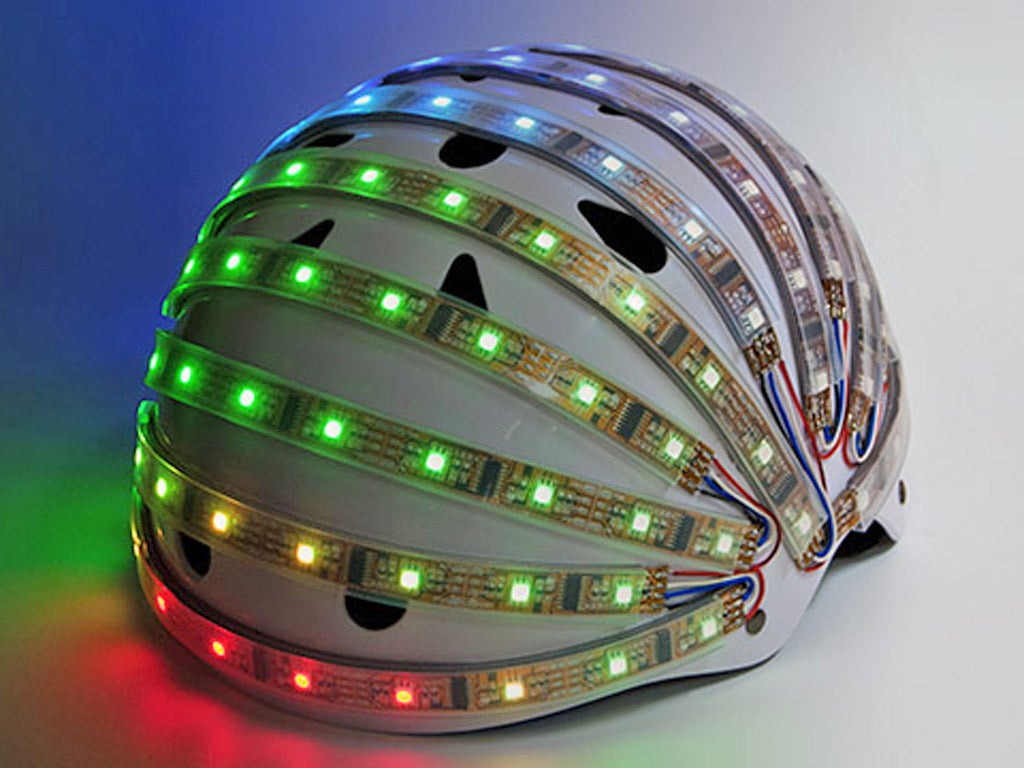Will Dean's Ideas Factory: A nod of the head to show which way you're going

In a recent feature on bike innovations we looked at the Pulse bike from Teague which lights up like a Tron lightcycle.
If the idea of rolling down a B-road looking like a young Jeff Bridges is a tad too garish, then perhaps the LumaHelm is for you. The work-in-progress project, which comes from the Exertion Games Lab which works out of RMIT University in Melbourne, sees strips of LEDs fitted atop a slightly modified bike helmet.
The lights are connected to a thin microcontroller board so that its light can be controlled by a sensor input – in this case head movements. This means that when a cyclist wants to turn right (as in the picture, inset) all they have to do, rather than take their arm away from the handlebars is make a gesture with their head to the right. If they want to stop, they can pull their head back and activate a red brake light.
In a video on the Exertion Games Lab, one of the helmet's creators – Wouter Walmink – explained that it isn't just an opportunity for safety, it could be used for, say, rock climbers to talk to each other on a cliff face: "We want to turn this into more than just a thing for safety, but also for communication." For many cyclists, just knowing that someone can see your signal in a dark street may well be good enough.
Touch me! Apple's degree of contact
Anyone who's read Walter Isaacson's biography of Steve Jobs will know that his vision for Apple stores was to make them more than just a shop.
Just one of the borderline bizarre methods in which Apple aims to transform its shops into something more than mere swish PC Worlds is so small that you've probably not noticed it. It involves the angle of the screens of the MacBooks on display.
Carmine Gallo spent a year looking at Apple stores and how they've helped the firm's continued booming retail success. Gallo discovered that Apple employees, or "specialists" use an app called Simply Angle to make sure that all the screens are at the same slightly awkward angle.
This, in turn, leads potential customers to grab hold of the computer and push the screen back, and thus actively engage with the product. It's the same reason, explains Gallo, why Apple allow open access to the web on their products – to get people to come in and check their mail and, hopefully, fall for the product. Which is something to tell the angry man in Dixons if he tries to stop you using a laptop for doing the pools. More: forb.es/iAngle
Join our commenting forum
Join thought-provoking conversations, follow other Independent readers and see their replies
Comments
Bookmark popover
Removed from bookmarks